
There’s an awful lot to like about Final Fantasy VII Rebirth. Its cinematic combat is highly engaging, its characters are remarkably compelling and its stunning visuals on PS5 have me using Photo Mode every few steps. And yet, there’s one aspect of the game that has proved to be a surprisingly excellent addition: The mini-games.
There are a lot of mini-games in Final Fantasy VII Rebirth. To be honest, there’s almost an overwhelming amount of them in the early stages. And while my colleague Tony Polanco found many of them to feel “forced” in his (generally very positive) Final Fantasy VII Rebirth review, after almost 30 hours with the game, I’m finding them a charming inclusion.
In fact, I would go as far as to say that Final Fantasy VII Rebirth is a great reminder of the power of mini-games. The sheer quantity of them is impressive, and each serves as a wonderful distraction and a great change of pace in between the game’s many large-scale bosses. Here’s why I love Final Fantasy VII Rebirth’s mini-games so much.
Mini-games for days
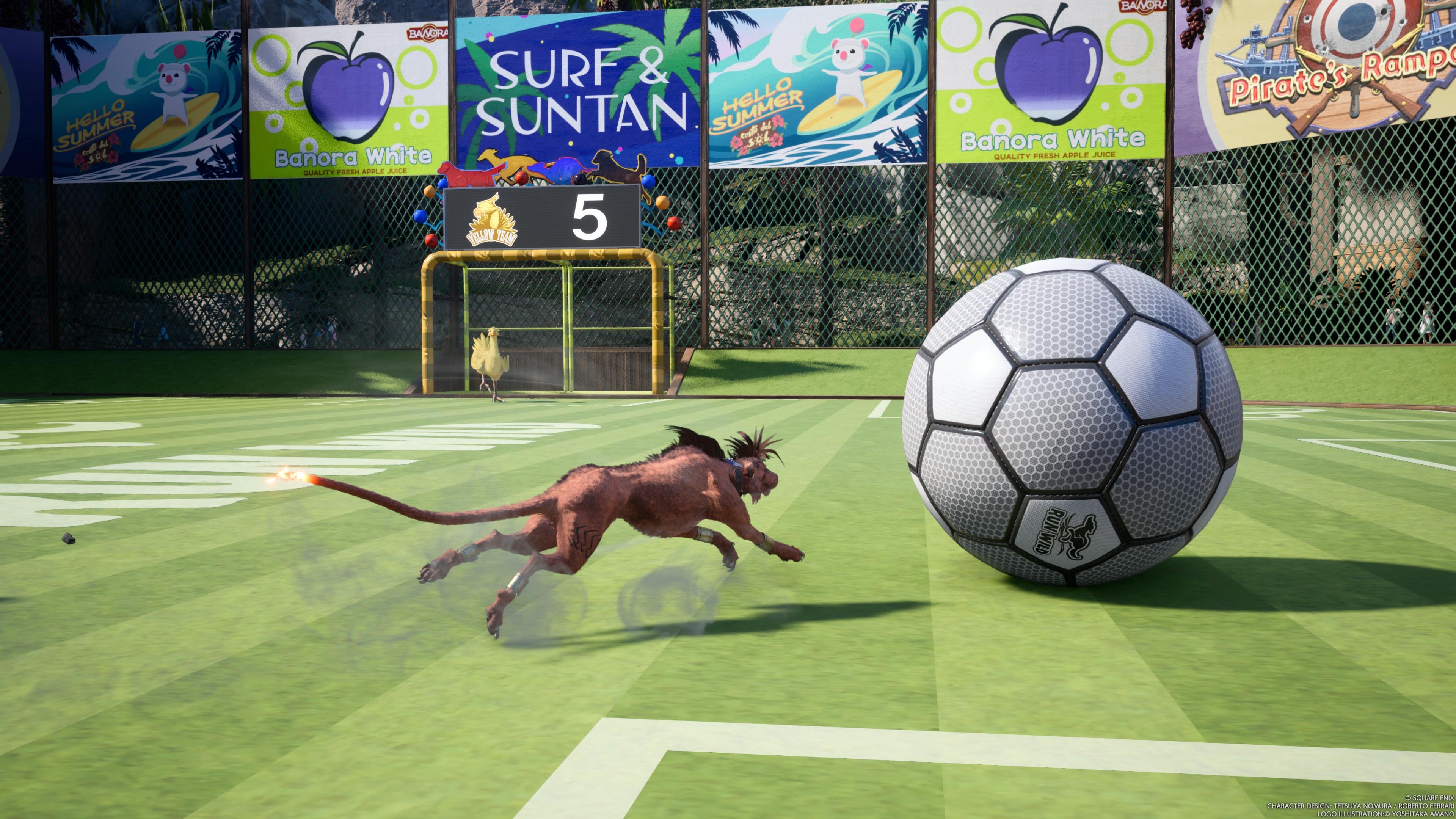
As noted, Final Fantasy VII Rebirth doesn’t just occasionally throw a mini-game at you, it absolutely showers players with them. As you explore the world with Cloud Strife and his friends, you’ll discover all manner of micro experiences from Chocobo racing to a Rocket League-inspired soccer game that swaps RC cars for animals. And those are just the start.
There’s also a carnival-style shooting gallery, a devilishly difficult boxing match, a mine cart ride that has you shoot boxes along the track to increase your score and a parade sequence that functions as a rhythm game (Which I was truly terrible at and fumbled my way through). There’s even a bizarre mini-game where you are transformed into a frog and jump over rotating beams much like a round in Fall Guys. And those are just some of the more than a dozen I’ve encountered so far.
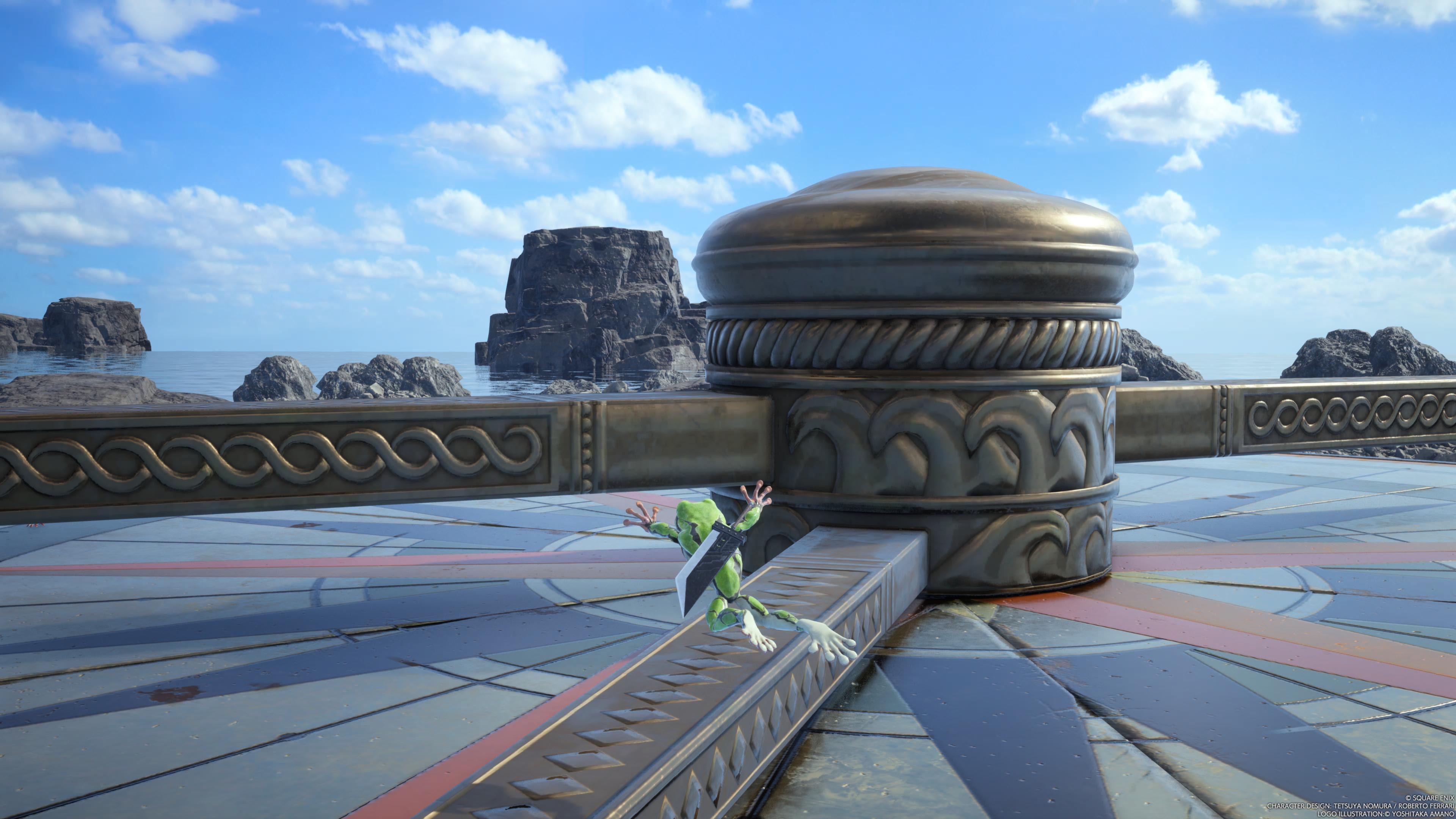
Some of these mini-games appear only once — or have only appeared once so far in my ongoing playthrough — and then are never seen again, and as you would expect none of them offer much in the way of depth (Although, the Chocobo racing does have a few different mechanics at play). But that’s not a problem, as they function well as light distractions that break up the pacing in between major story missions.
Move over Gwent
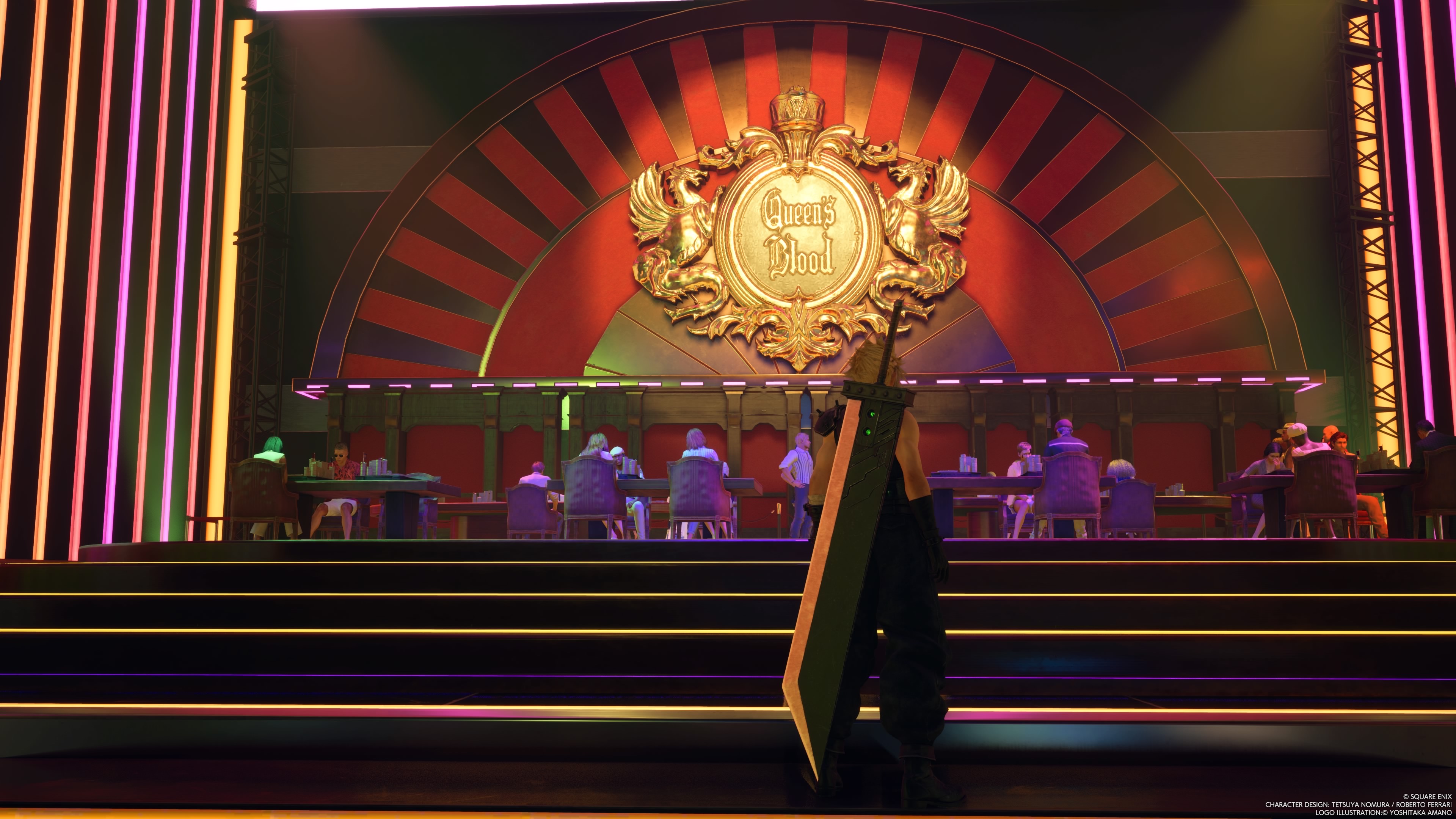
I couldn’t talk about the various mini-games within Final Fantasy VII Rebirth without giving special mention to the most prominent: Queens Blood.
Remember back in 2015, when gamers became obsessed with The Witcher 3 card game Gwent (the mini-game became such a hit that developer CD Projekt Red spun it out into its own separate release), I’m expecting history to repeat itself with Final Fantasy VII Rebirth’s equivalent, as it’s just as absorbing, strategic and addictive.
In Queen’s Blood, your objective is to place cards on a board that is split into three lanes. Each card has a numerical score — with some having the ability to raise the score of your cards, or lower your opponent's cards — and at the end of the game, once no more cards can be placed on the board, the scores are tallied up and a winner is crowned.
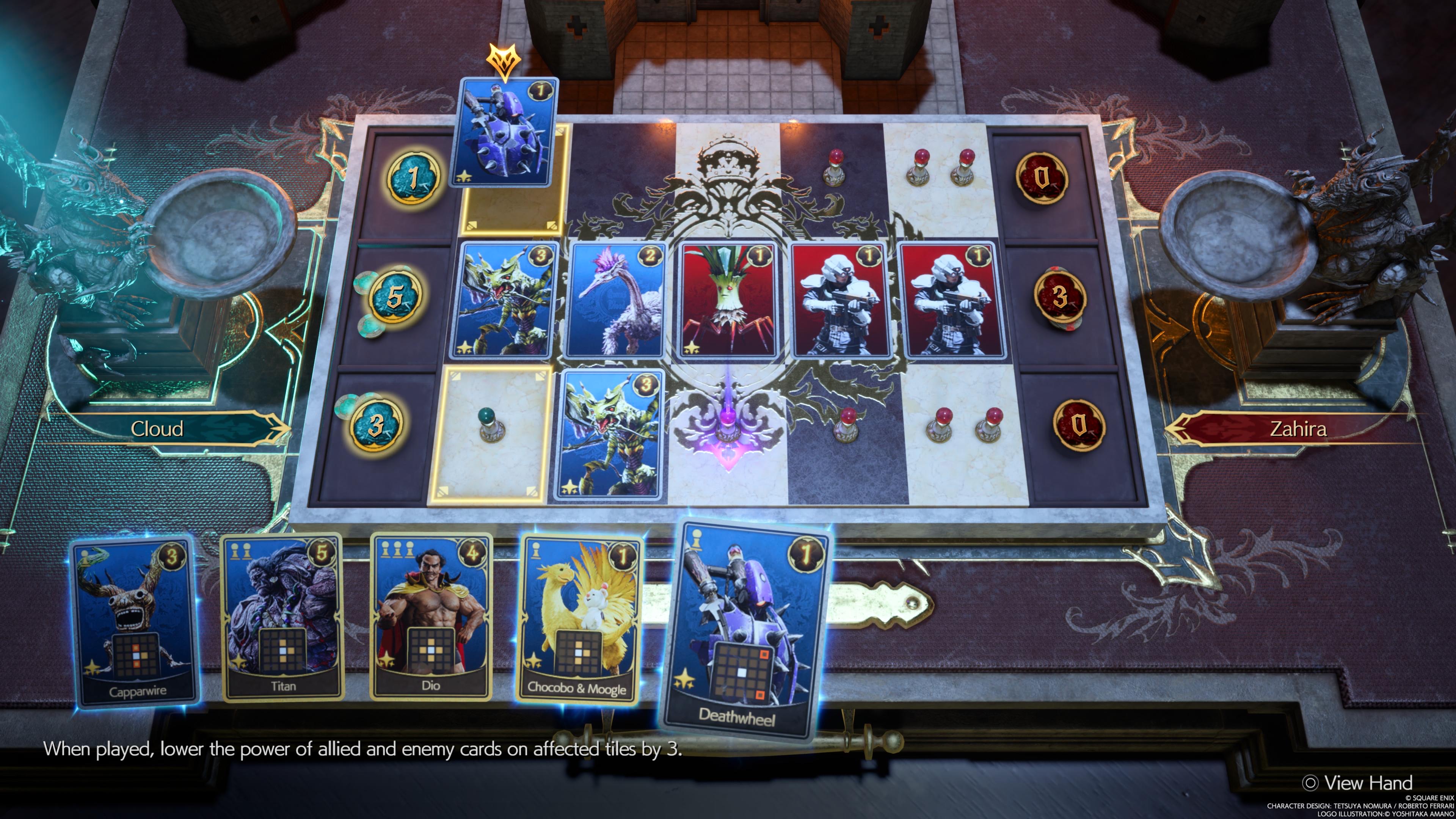
It’s pretty clear that Queen’s Blood takes direct inspiration from Gwent, but that’s no bad thing. Gwent became hugely popular for a reason, and Queen’s Blood taps into that same sense of satisfaction when you place a high-powered card and watch your score increase, or when you plan in advance and formulate a winning strategy.
When I first played The Witcher 3 I found myself more concerned with finding NPCs to play Gwent against than continuing the main story, and that’s an experience I’m also having in Final Fantasy VII Rebirth. Forget finding the villainous Sephiroth, I’m on the hunt for high-powered cards for my Queen’s Blood deck instead.
Rebirth makes mini-games matter
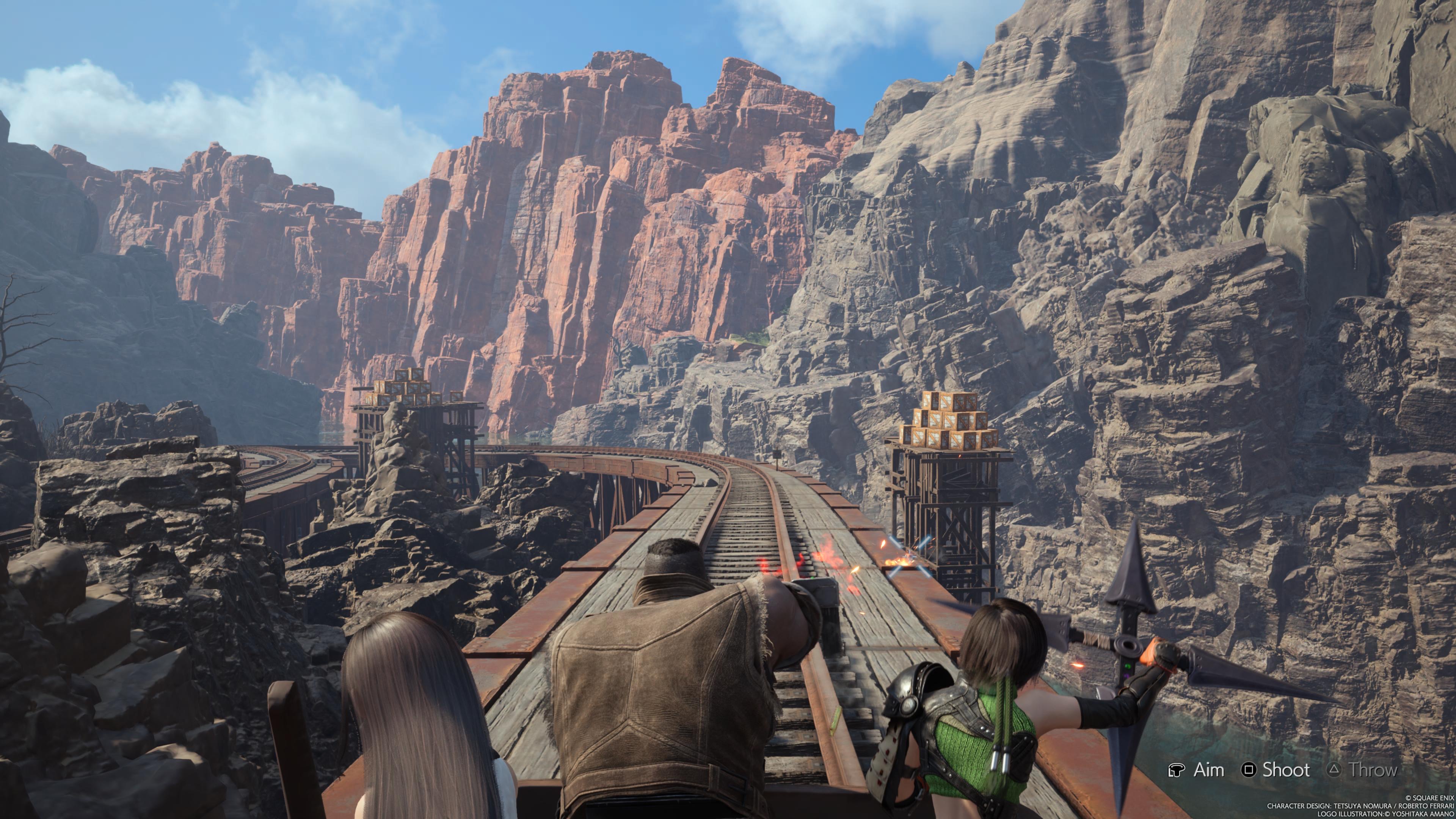
Usually, I don’t have all that much interest in mini-games. I can’t count the number of RPGs I’ve played in recent years that feature their own card game, or some other form of optional distraction, that I’ve completely glossed over in favor of progressing the story.
However, with Final Fantasy VII Rebirth, I’m constantly stopping for a game of Queen’s Blood or spending more than 30 minutes trying to beat my fastest lap time at the Chocobo racing circuit. Part of the reason is the sheer number of mini-games on offer, which ensures that none of them ever become overused, but I think another reason I’m enjoying Rebirth’s emphasis on micro-experiences is that it fits the game’s overall tone.
Final Fantasy VII Rebirth has a pretty high-stakes plot, with some very serious themes, and yet at its core, it’s a wonderfully silly game. And many of the mini-games fit that vibe perfectly. There are not many RPGs where you can play soccer with your talking dog companion, and then head out to stop a world-ending threat, and not feel tonal whiplash. Yet the developers at Square Enix have pulled off that balance expertly.
So, while I’m very eager to see how Final Fantasy VII Rebirth’s story plays out (and I’m dying to know if that iconic moment from the original Final Fantasy VII game has been retained), along the way I’ll be stopping to partake in whatever oddball mini-game comes my way next. And, if the final boss ends up being an elaborate Queen’s Blood match, I’ll have my best deck at the ready.







